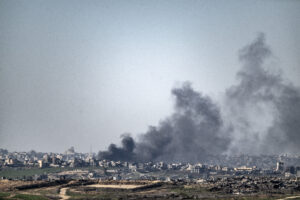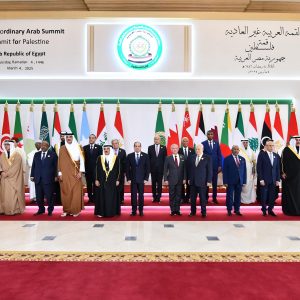Bosnia Marks 6th Anniversary of Verdict against ‘Butcher’ Karadzic
BELGRADE, Serbia (AA) – Bosnia and Herzegovina on Thursday marked the sixth anniversary of the guilty verdict against ex-Bosnian Serb leader Radovan Karadzic for genocide and crimes against humanity during the 1990s Bosnia war.
Karadzic, who spearheaded the most severe war crimes committed in Europe since World War II, was sentenced to 40 years in prison and has been jailed since 2008 for his deeds that left tens of thousands dead.
A UN tribunal in The Hague found Karadzic guilty on 10 counts out of a total of 11 charges.
He faced two counts of genocide, but while the court convicted him of his role in the Srebrenica massacre in 1995, he was found not guilty of genocides in the Bosnian municipalities of Bratunac, Foca, Kljuc, Prijedor, Sanski Most, Vlasenica, and Zvornik.
Ramiz Salkic, vice president of Republika Srpska, and military expert Berko Zecevic, who witnessed the Karadzic case first-hand, told Anadolu Agency about the former Serb leader and his ideology.
“Karadzic’s ideology lives on in Bosnia and Herzegovina,” Salkic said.
In 1995, the Dayton Peace Agreement ending the war in Bosnia created a new federal government system with two entities: the Republika Srpska and the Croat and Bosniak-populated Federation of Bosnia and Herzegovina.
Salkic added that Karadzic’s ideology is being kept alive in school books, media, and institutions in Republika Srpska.
“We see the greatest example of this in the history books. Karadzic and similar war criminals are portrayed as heroes in history books in Republika Srpska. This shows the general situation of Bosniaks living in Republika Srpska,” he said.
Zecevic said no prison sentence could be commensurate to the sorrows that the victims of Karadzic’s ideology had to endure.
“The experiences of a murdered or raped woman, a murdered child, a young person, a soldier, regardless of whether they are Serb, Croat, or Bosnian, can’t be measured by any prison sentence,” said Zecevic.
He underlined that history would not write the number of years that Karadzic was sentenced, but rather that he was found guilty for his crimes and that genocide was committed in Srebrenica at his command.
Bosnian war and Karadzic’s role
Bosnia gained independence on March 1, 1992, months after Slovenia and Croatia broke away from the former Yugoslavia.
In 1992, a referendum on independence for Bosnia and Herzegovina was held — 64% of its people participated and voted 99.44% in favor.
A month later, the EU and the US announced their recognition of the state.
However, the then-political leader of Bosnian Serbs, Karadzic, launched an ethnic cleansing campaign in Bosnia and Herzegovina, triggering a war that led to a catastrophe for Bosniaks.
In November 1995, Bosniaks — amid international pressure — stopped the war with the Dayton accord.
Karadzic was the president of the self-styled Bosnian Serb Republic and supreme commander of its armed forces between 1992 and 1995, when around 100,000 Bosnians died as Yugoslavia descended into ethnic bloodshed.
Karadzic — who has been dubbed Butcher of Bosnia — was first indicted in July 1995 for the shooting of unarmed civilians in Sarajevo and taking UN peacekeepers hostage. Four months later, he was accused of orchestrating the slaughter of 8,000 Muslim men and boys after Serb forces seized the UN’s Srebrenica “safe area” in eastern Bosnia.
Held in prison camps during the Bosnian War, he went on the run after the war and was finally arrested in Belgrade in 2008.
When he was brought before the war crimes tribunal in March 2009, he refused to make a statement and declared his innocence through his lawyer.











